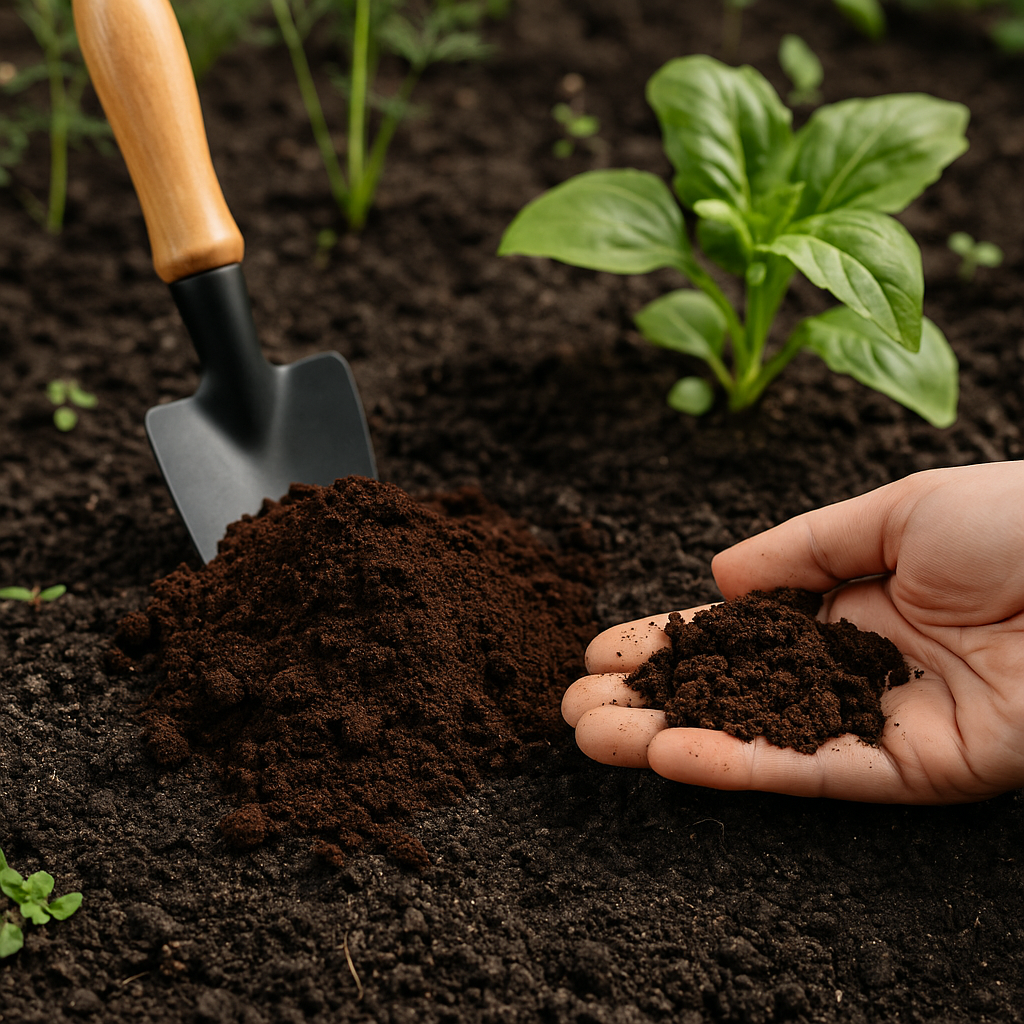
Are Coffee Grounds Good for the Garden? Let’s Brew Up the Facts
Share
Your morning cup of coffee doesn’t just fuel your day—it can also fuel your garden’s growth. Gardeners around the world are turning to used coffee grounds as a natural, sustainable way to enrich their soil and support healthy plants.
But are coffee grounds really the green gold they’re hyped up to be? At Procaffeinate, where sustainability meets luxury coffee, we’re diving into how your leftover grounds can nurture your garden and which plants will thank you for it.
Why Coffee Grounds Are a Gardener’s Secret Weapon
Coffee grounds aren’t just waste—they’re packed with nutrients and beneficial properties that can work wonders in the garden. Here’s why they’ve become so popular:
1. Nutrient-Rich Powerhouse
Coffee grounds contain:
- Nitrogen (essential for leafy growth)
- Phosphorus
- Potassium
- Calcium
- Magnesium
These are all key nutrients that contribute to strong, healthy plant growth.
2. Improves Soil Structure
When mixed into the soil, coffee grounds help:
✔ Aerate compacted soil
✔ Retain moisture
✔ Improve drainage
This makes them particularly useful for heavy clay or sandy soils, improving their texture and water retention.
3. Encourages Beneficial Microorganisms
Coffee grounds attract earthworms and beneficial microbes, both of which are vital for healthy, living soil. They help break down organic matter and release nutrients into forms that plants can easily absorb.
How to Use Coffee Grounds in Your Garden
To get the most out of your coffee grounds, here’s how to use them effectively:
1. Add to Compost
✔ Coffee grounds are considered a green material (nitrogen-rich) in composting.
✔ Balance with plenty of brown materials (dry leaves, cardboard, straw) to avoid a soggy pile.
✔ The result? Rich, dark compost that plants love.
2. Direct Soil Amendment
✔ Mix coffee grounds into the top few inches of soil.
✔ Avoid piling them too thick—a thin layer is plenty to avoid creating a compact, water-resistant barrier.
3. Mulch
✔ Sprinkle coffee grounds lightly around plants.
✔ Combine with other mulch materials like bark or straw for the best results.
4. Natural Pest Deterrent
Some gardeners swear that coffee grounds deter slugs, snails, and even cats from invading garden beds. While not a guaranteed solution, they can add a protective layer around delicate plants.
Which Plants Love Coffee Grounds?
While coffee grounds are slightly acidic when fresh, used grounds are generally close to neutral pH, making them suitable for most plants.
Coffee Ground-Friendly Plants:
🌱 Tomatoes
🌱 Roses
🌱 Blueberries
🌱 Azaleas
🌱 Hydrangeas
🌱 Carrots
🌱 Radishes
🌱 Houseplants (sparingly)
A Word of Caution: When Not to Use Coffee Grounds
While coffee grounds can work wonders, they should be used thoughtfully:
- Don’t overdo it. Too many grounds can compact soil or alter pH excessively.
- Avoid using grounds alone as mulch. They can become too dense, restricting water flow.
- Test pH levels. Some plants prefer neutral to alkaline soil and may not benefit from even slight acidity.
Final Grounds for Thought
Yes—coffee grounds are good for the garden, offering nutrients, improved soil texture, and a boost for compost. Used wisely, they can be a sustainable, cost-effective way to recycle your morning brew into blooming beauty.
At Procaffeinate, we’re all about making the most of every bean, from brewing luxury specialty coffee to promoting eco-conscious practices like composting and garden enrichment.
So, next time you finish your cup, think twice before tossing those grounds—your plants will thank you.
☕ Want to brew with purpose? Explore our premium coffee range here and let every cup do double duty for you and your garden.
Do you use coffee grounds in your garden? Share your tips or success stories in the comments below! 🌱




